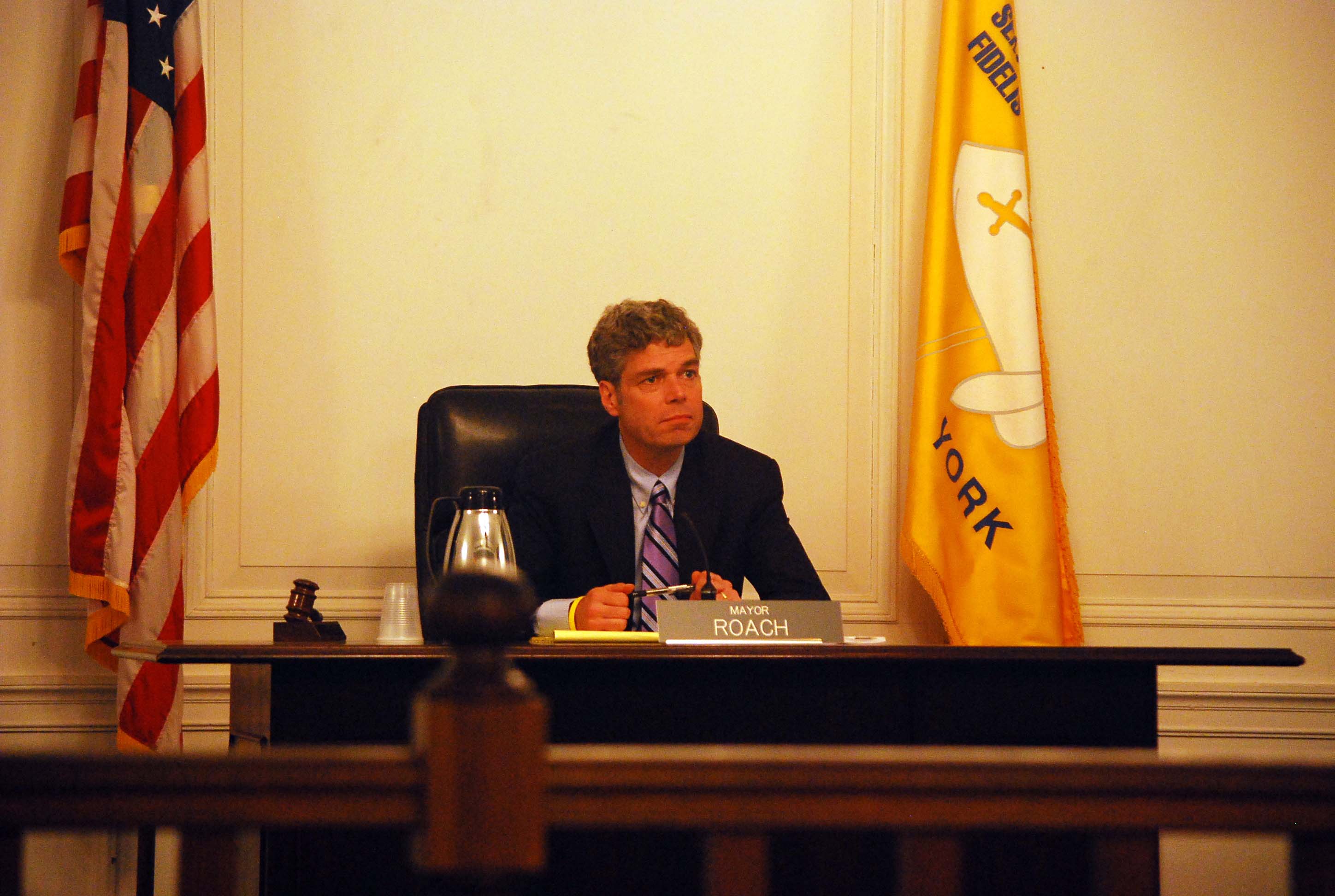New Castle Approves Chappaqua Station Affordable Housing Project
Amid threats of a lawsuit and charges of developer profiteering, the New Castle Town Board approved the town’s first affordable housing project in nearly 20 years in a split vote Tuesday night.
The all-Democratic board decided by a 3-2 margin to move ahead with Conifer Realty’s 28-unit Chappaqua Station project on Hunts Place despite vocal opposition throughout the review process and again last week. Supervisor Susan Carpenter and council members Robin Stout and Elise Kessler Mottel supported the resolution while councilmen Jason Chapin and John Buckley cast the dissenting votes.
“I believe this project will make New Castle a better community,” Mottel said. “It will provide an opportunity for others less fortunate than you and I to live in our great community and for their children to attend our wonderful schools. I believe this will not just be a project that benefits the residents of the development but benefits all of us, adults and children. To me, this project is an investment in our community.”
The action will pave the way for the first new affordable housing project in New Castle since Stone Creek was built on the western side of town in 1995. The units would count toward the county’s obligation to build 750 units of affordable housing by the end of 2016 under the settlement the county reached with the federal government four years ago.
Many had opposed the project during the two-year review arguing that the building would be out of character with the downtown, that there would be safety concerns because its entrance would be near the end of the Saw Mill Parkway exit ramp and its residents would be stigmatized, in part because the structure would be isolated near the Metro-North train tracks.
Before the vote most residents who spoke during the Sept. 10 meeting urged the board to defeat the proposal. Several speakers warned that an Article 78 would be filed because they charged officials had failed to properly follow the state Environmental Quality Review Act (SEQRA) process.
Others were angered by the contents of Conifer’s financial filings that were obtained from the Westchester County Planning Department. During a meeting in July, Conifer had refused to divulge the information publicly after residents questioned statements from company representatives who had argued that it would be economically unfeasible to reduce the number of units in the building. The board agreed at the time to keep the information confidential.
Residents said last week the documents showed that each Chappaqua Station apartment, which would average a little more than 1,000 square feet, would cost $545,000 to build. However, Conifer is only investing a little more than $12,000 per unit with the rest derived from state and federal subsidies. It stands to reap gross revenues of $1.9 million for building the facility.
Chappaqua resident Will Wedge called the arrangement “an insane gold-plated number for a low-income affordable housing” project and stated that it is far more expensive per square foot than almost any project in town.
“It’s frankly sinful and a waste of taxpayers’ money for something that can built for a lot less,” Wedge said.
Other opponents, including Chappaqua architect William Spade, said the project would be a mistake because it’s the wrong location and the developer has no stake in the community.
“At the end of the day, Conifer earns $1.9 million for a development and it walks away with very little, if nothing, in the game in terms of this project,” Spade said. “You do not have a partner here. They do not care what happens with this project.”
After the meeting, Conifer Vice President Andrew Bodewes would not address the financial documents saying that the information was “irrelevant.”
“The numbers aren’t anything that’s relevant to what the town board approved,” Bodewes said. “The town board was reviewing issues related to environmental impact and the site plan. I’m not going to get into something that wasn’t relevant.”
Supervisor Susan Carpenter responded that she hoped that other developers would come in with proposals but that hasn’t occurred. Three times in the past 20 years proposals were either defeated or abandoned because each time it was deemed the site was wrong.
“We’d love to see some more affordable housing projects that can be done with a lot less money,” she said.
Another opponent, Chappaqua resident Ed Frank, was the first of several speakers who suggested that a lawsuit would ensue. He argued that because the Hunts Place property was substantially contiguous to the Chappaqua train station and Depot Plaza, two local landmarks, it required a Type I action under SEQRA.
The board concluded that the properties were not substantially contiguous, being separated by the Route 120 bridge, Town Attorney Clinton Smith said.
“I think when push comes to shove this is going to be decided in an Article 78 proceeding,” Frank said.
Conifer’s attorney Alfred DelBello said litigation would be addressed by his client if and when it materializes.
“We’ll deal with it if it comes,” he said.
Some of the most contentious moments of the evening occurred when resident Robert Greenstein, a Chappaqua Station opponent who is running for supervisor on the Republican line in November, demanded to know who Carpenter was referring to when she said that “we” would like to see more affordable housing in town.
He said that the board was choosing to ignore that the settlement does not obligate any of the 31 municipalities named in the agreement to build a specific number of units and that the town had already approved 20 units in 2011 as part of the Chappaqua Crossing residential plan. Summit/Greenfield’s decision not to build those units isn’t the town’s responsibility, he said.
“It seems to me that the town board likes to ignore those facts and likes to hide behind the settlement, to use it as a sword to push your agenda, which is to build as many affordable housing units as possible,” Greenstein said.
Councilman Robin Stout told Greenstein that he showed “an amazing lack of understanding of what the law requires for a community.”
The councilman, while acknowledging Hunts Place was not a perfect site, said that Conifer had listened to the concerns of the community and revised its proposal seven times, including reducing the number of units from the originally proposed 36 to 28.
Bodewes said construction would take about 18 months but no date was given for when it would begin.

Martin has more than 30 years experience covering local news in Westchester and Putnam counties, including a frequent focus on zoning and planning issues. He has been editor-in-chief of The Examiner since its inception in 2007. Read more from Martin’s editor-author bio here. Read Martin’s archived work here: https://www.theexaminernews.com/author/martin-wilbur2007/


